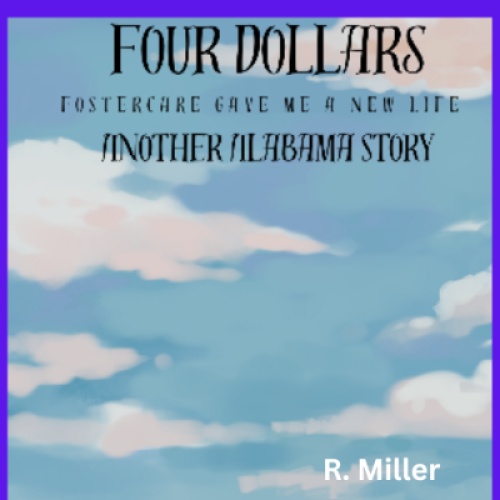I spent much of my early life attempting to escape from the world I found myself in. Through tragedy, I found myself. I discovered who I was supposed to be. I found my destiny. Hustled quickly into the foster care system in Alabama, my spirit was broken. Every which way I turned, I found a wall. My relatives could not help me, nor could temporary foster homes.
My days turned to months, and my months turned to years, yet I remained trapped in a world where some walls placed in my way were invisible. This meant I was contained so much that once I was released to be a normal child, to have a typical house, a regular mom, and a regular dad, I would escape out the window searching for a life that did not exist.
All the time I spent in a state-run home for children, I could hear normalcy, children running and playing, I could see them through the cracks in the wall, their faces, lamenting, happy smiles, yet I could not get to them. Was there an actual wall that separated me from them, or was it all a figment of my imagination? Why was I not allowed to take the bus and go to school? Am I not smart enough, or am I invisible?
I would see other kids come into the group home and many of them leave. They found families, and they were happy. Why am I still here? Never mind. Some young children here may need me, so I have a job. They may need someone to talk to. I feel sad, but I know the younger kids feel worse than I do, so I continue to smile. I am here for them because I know what it feels like to be confined.
Today is my lucky day. I have found a good family willing to take me into their home. Wow, I am so excited, yet I am cautious. My foster parents love me, I know this is true, yet I feel this urge to escape their home. Out the window I would go. I felt free out in the dark, and night after night, I would go out the window, but I always had an urge to return to their home.
My foster parents were not educated people. My foster dad finished 3rd grade, and my foster mom completed eighth grade. I encountered the neighborhood drunk who changed my life. I called this man the professor. This man was only one of the many professors I found on Barbara Drive, where I would later feel free and safe.
In sixth grade, I had to attend school outside of Barbara Drive. Why did my teacher always whisper in my ear, "You will never be good enough," when I had the highest grades in the class? Barbara Drive was my sanctuary without walls, real or fake. I was somebody in my neighborhood; Everyone had my back.
Walking across the stage during high school graduation, I hear my foster mom say, "You've made it, son." I felt relief and thought about the bigoted teacher and her unkind words, which propelled me forward. I had an entire neighborhood behind me, yet she could not understand that. As I walked, I felt the walls shatter with each step; then I began to smile.
My foster mom and dad approached me and gave me an envelope. They praised my accomplishment and on the envelope it read, "This is from your father and me." I thanked them and quickly put the envelope in my pocket. I wanted to enjoy the moment since I only had a few hours before I boarded the bus headed to Marine Corps boot camp at Parris Island, S.C.
After saying my goodbyes, I found a seat, leaned back, and relaxed. An hour into the ride, I began to feel bored, so I opened the envelope I had with me. Inside were four dollar bills and a letter. Many people might think, "What, only four dollars?" My parents were not financially wealthy, but they were rich in love. They taught me how to love and live a life full of love.
The letter was a short paragraph. As I read it, I focused on this part:
"Dear Son, we are so proud of you and all you have accomplished. We love you and understand your story. The only thing we can afford to give you is four dollars. This money symbolizes the years you spent in foster homes and the state-run facility, which you referred to as the lost years of your life. You will always have a home here on Barbara Drive. We love you."
Also, the professor thanked you for sharing your life story with him, stating that it changed his life.
Despite my challenges, I owe much of who I am today to my foster parents and neighbors on Barbara Drive. The professor was always there to help me with my homework, whether it was Math, English, or any other subject I had questions about. One night, I met the professor near an old bridge on Holmes Avenue. That encounter changed my life. I learned to look past his appearance and see that this was a kind person who was broken like me.
My foster parents were not educated in the way we typically define education today. Their understanding, however, was much more profound. A spiritual education guided them, and the seeds they planted on Barbara Drive grew into a beautiful garden. The professor always knew he could count on my foster parents for a good meal and a healthy dose of God's word.
My foster parents learned my habits because I told the professor what was on my mind, and the professor relayed that information back to them. The professor was always out at night, and my foster parents knew I would exit the window and head towards that old bridge, and the professor would be there to keep me safe.
It is essential to treat people with dignity and respect. The professor spent many years roaming the streets of Barbara Drive. After several years in the Marines, I returned home and made it a point to spend twenty-four hours on the street with the professor and others who called the streets their home. I felt a strong need to do this, as my foster parents, neighbors, and the professor had given me a new identity.
I discovered what it truly meant to be loved. My foster parents did their best to help me regain the four years I had lost. I never imagined that four dollars could be so meaningful. Looking back on the chapters of my life, I remember that I had a wonderful childhood.
The professor in this story is neither fictional nor part of my imagination. I never learned much about his life; he never shared his story with me. He lived in one of the more beautiful homes on Barbara Drive, yet he chose to live on the streets, doing odd jobs and drinking. Despite this, he was among the most inspirational people I have ever met. I often wondered if the professor needed me as much as I needed him. He was a wonderful person who helped to mend the spirit of a good but broken child.







